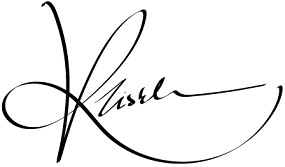As artists and creatives, we all require feedback at times to keep on improving on our work and craft. However, asking and receiving feedback is not always the easiest thing especially if that feedback is on something that you have been pouring your heart and soul into. It is quite natural to feel defensive when given any sort of criticism, as we are not accustomed to approach ourselves and our work objectively.
This is why listening and finding something constructive in any feedback is like an artform that needs practice to make the most out of.
So, what can we do to improve this ability of ours? Having been a full-time artist for some time now, let me share a couple of things with you that have really helped me out:
- Change your perspective – Whenever you receive any feedback, take a moment before responding to realize that this is an opportunity to improve and not for you to go on the attack. There are times that constructive criticism can be poorly worded and delivered which can be challenging when initially received, however, it is up to us to understand and apply the essence of the feedback.
- Active Listening – When we talk about interpreting constructive feedback, being able to actively listen and discerning the useful bits that can be actually applied to your practice is key. Now, what do I mean by active listening? Well to put it simply, active listening requires you to listen attentively, taking in verbal and non-verbal cues, and understanding completely the intention and retaining the useful information from a conversation.
This art of listening is super easy to do, all you have to do is:
- Pay Attention
- Withhold judgement
- Reflect
- Clarify
- Summarize
- Share
- Express gratitude when given feedback – Once you have received feedback and have reflected on it, always respond with gratitude by thanking the person who has shared their opinions with you. This not only makes the whole exchange a pleasant experience but also neutralizes any sort of abrasiveness that might occur.
I believe this is step is a win-win as thanking the person who has given you valuable feedback will encourage them to continue doing that, while deliberating expressing appreciation to a person who might be malicious in their feedback will only show your indifference to their opinion. So, just be thankful either ways!
- Work on how you give feedback – The art of feedback goes both ways, in order to be better at receiving feedback, you also need to work on giving constructive feedback as well. It is an equally crucial skill that will allow you to get a better understanding of what is intended when feedback is given and drawing actionable steps from it. Please do keep in mind that feedback is much appreciated when it is asked for, instead of just being given without any prompt.
These are some pointers that you can consider the next time you are at the receiving end of some feedback. Constructive criticism has been vital in my progress as an artist and I hope that you will also work on making use of it in a similar manner.
Shop my artwork collection here.
Check my digital artwork collection here.


